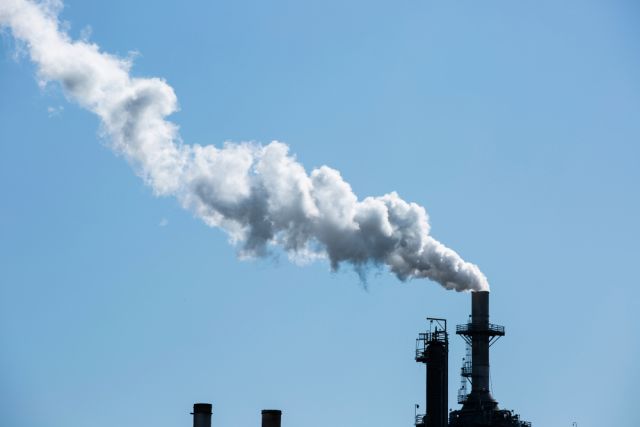
Congress gave the current administration permission to update methane emissions rules as part of the Inflation Reduction Act passed in 2022. (Source: Shutterstock)
The November presidential election will affect environmental rules, but a specialist in federal law says energy business leaders should keep something in mind; regulations rarely fade away.
“Frankly, over time, regardless of who is in office, environmental regulations just tend to become more stringent,” said James Dolphin, a partner at Kirkland & Ellis LLP in the firm’s Environmental Transactions Practice Group. “What that means is really articulating a clear plan with respect to satisfying your regulatory obligations and thinking through obligations relating to methane emissions and other areas of regulatory concern.
“Because your capital, your investors are going to be focused on this when they are evaluating … commitments to your business or evaluating transactions. It will be a focus.”
Dolphin appeared at the Hart Energy SUPER DUG Conference & Expo to discuss federal regulations and the energy industry, particularly new methane requirements introduced in December 2023. The regulations are scheduled to be phased in over a two-year period.
The best route for E&Ps and midstream companies to take is to prepare for the new regulations, Dolphin said, though he added that the results of the next election or a lawsuit could have a dramatic effect on the way the rules are first implemented, and that legal actions are still in play.
The new rules require energy companies to update their infrastructures to prevent leaks, with a fine scheduled at $900 per metric ton per methane leak in 2024. The law also requires frequent monitoring by independent third parties for emissions. Twenty-four state attorney generals filed a lawsuit against the rules, saying the Environmental Protection Agency (EPA) has overstepped its jurisdiction.
Congress gave the current administration permission to update methane emissions rules as part of the Inflation Reduction Act passed in 2022. If President Joe Biden is re-elected, energy companies can expect a strict interpretation of the rules and more regulations aimed more broadly at the oil and gas industry as a whole.
If Donald Trump is returned to office, “You can expect his administration will try to pull back or repeal rules where they’re able to do that or will reduce enforcement of existing rules where they have the discretion to do so,” Dolphin said.
For now, the courts are the venue for fighting back. The 24 states seeking to stop the new regulations from being implemented filed a lawsuit against the EPA in March.
While not predicting the ultimate outcome of the court action, Dolphin said one recent ruling shed some light on how the Supreme Court would respond if the case makes it that far.
“There is some precedent from the power generation sector for the Supreme Court stepping in and invalidating rules that it views as causing or resulting in a forced shift to different types of renewable resources,” he said.
Dolphin cited the court’s 2022 decision to strike down the Clean Power Plan implemented by the Obama Administration in 2015. The court ruled that the EPA did not have the authority to force power utilities to change electrical production methods to reduce greenhouse gases.
“These methane rules are issued under similar provisions of the Clean Air Act, and that may be something that the Supreme Court takes into account if this litigation makes it up there,” Dolphin said.
Regardless of the outcome of the legal case or the elections, the petroleum industry does have current electrical demand trends on its side, Dolphin said, thanks to the rapidly growing U.S. industrial and technology sectors.
“The demand is there and will continue to be there,” he said. “And the reality is that emerging energy technologies are not in a position to meet that demand at this point.”
Recommended Reading
Lion Equity Partners Buys Global Compression from Warren Equipment
2025-01-09 - Private equity firm Lion Equity Partners has acquired Warren Equipment Co.’s Global Compression Services business.
Not Sweating DeepSeek: Exxon, Chevron Plow Ahead on Data Center Power
2025-02-02 - The launch of the energy-efficient DeepSeek chatbot roiled tech and power markets in late January. But supermajors Exxon Mobil and Chevron continue to field intense demand for data-center power supply, driven by AI technology customers.
EnLink Investors Vote in Favor of ONEOK Buyout
2025-01-30 - Holders of EnLink units voted in favor of ONEOK’s $4.3 billion acquisition of the stock, ONEOK announced Jan. 30.
Mach Prices Common Units, Closes Flycatcher Deal
2025-02-06 - Mach Natural Resources priced a public offering of common units following the close of $29.8 million of assets near its current holdings in the Ardmore Basin on Jan. 31.
Transocean President, COO to Assume CEO Position in 2Q25
2025-02-19 - Transocean Ltd. announced a CEO succession plan on Feb. 18 in which President and COO Keelan Adamson will take the reins of the company as its chief executive in the second quarter of 2025.
Comments
Add new comment
This conversation is moderated according to Hart Energy community rules. Please read the rules before joining the discussion. If you’re experiencing any technical problems, please contact our customer care team.






